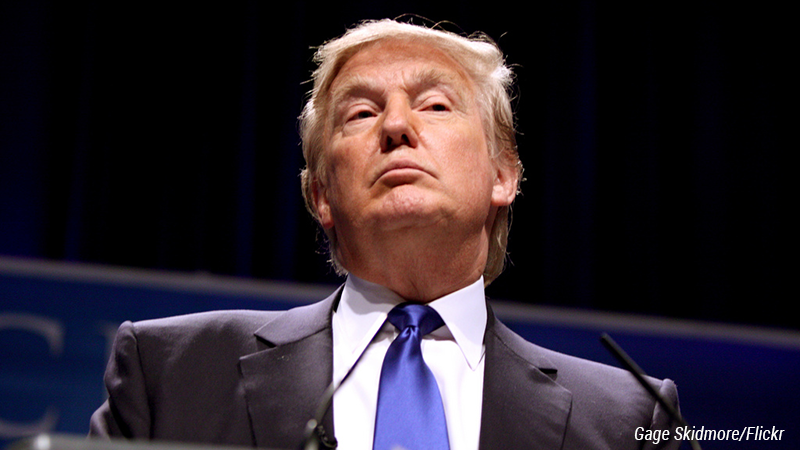“Donald Trump Will Be the President of All Races”
In recent discussions around the 2016 presidential campaign, Pastor Mark Burns made a bold statement asserting that “Donald Trump will be the president of all races.” This declaration captures a critical aspect of Trump’s strategy to appeal to diverse voter demographics, particularly within the African-American community. During an interview with Breitbart’s Matthew Boyle, Burns emphasized this sentiment as part of Trump’s outreach efforts.
Opening Doors in the African-American Community
Pastor Burns highlighted the significant progress Trump has made in reaching out to the African-American community. He noted, “So many doors within the African-American community have opened up for Mr. Trump.” This assertion points to an evolving dialogue between Trump’s campaign and various demographic groups that have historically leaned Democratic.
One significant event Burns pointed out was Trump’s planned visit to Detroit on September 3, where he intended to meet black business owners and faith-based leaders. This move, aligned with Labor Day weekend, underscores Trump’s desire to engage with communities he has struggled to connect with since the beginning of his campaign.
Engaging Through Faith and Media
In an innovative approach, Trump also aimed to connect with the African-American audience via media platforms. He appeared on Bishop Wayne T. Jackson’s Christian television program, “Miracles Do Happen,” a strategy designed to reach viewers through familiar and trusted channels. By courting faith-based leaders, Trump sought to break down barriers and foster a sense of community and trust.
Burns expressed confidence in Trump’s ability to connect with individuals on a personal level, saying, “I’ve never had anyone meet Donald Trump and then come out disliking him.” This anecdotal evidence presents an optimistic view of Trump’s ability to win over skeptics through direct interaction.
A Different Republican Approach
One of the compelling points Burns made revolves around the historical context of the Republican Party’s relationship with the African-American community. He noted that “most Republicans never go after the African-American community,” suggesting that Trump’s approach represented an opportunity to transform the party’s image. Burns argued that under Trump’s leadership, the Republican Party aims to shed the legacy of its past and present a more inclusive platform.
He continued, emphasizing that Trump recognizes the importance of crafting a plan that appeals to all Americans, regardless of race or ethnicity. This assertion taps into broader socio-economic concerns, arguing that issues like poverty transcend racial boundaries.
Focus on Economic Opportunities
Burns articulated the idea that “poverty don’t know any color,” emphasizing that financial struggles affect all demographics. This statement positions Trump’s economic agenda as a universal solution rather than one limited by racial identities. The call for job creation and economic revitalization resonated strongly within this context, with Burns highlighting that Trump’s policies intended to bring jobs back to the U.S.
He mentioned, “Donald Trump is talking about bringing jobs back to this country and securing our borders,” suggesting that these initiatives could benefit all Americans. By framing his economic policies in this inclusive manner, Trump aimed to appeal not only to African-American voters but to a broader base looking for substantial change.
Security and Shared Concerns
Expanding on the theme of inclusivity, Burns remarked about the shared risks posed by global threats, stating, “ISIS don’t care what color you are.” This comment underlines a viewpoint that security concerns should not be racialized and that all communities face similar dangers. His rhetoric appears designed to unite voters around common goals of safety and prosperity, rather than dividing them along racial lines.
Philanthropy and Community Support
Additionally, Burns spoke to Trump’s commitments outside of the campaign trail, suggesting that Trump has a history of philanthropy. “A man like Donald Trump has an obligation, I think he knows that to help the poor,” Burns stated, presenting Trump as someone whose values align with community support and charitable contributions. This claim positions Trump as a potential ally in addressing poverty and economic disparities.
However, when pressed about specific contributions to Burns’ ministry, he did concede that Trump had not donated directly to his church. This admission adds a layer of complexity to the narrative of Trump’s engagement with faith-based communities, raising questions about the nature of political and personal relationships.
Ongoing Conversations in Media
The discourse around Trump’s attempts to appeal to diverse populations continues to shape media conversations. Programs like “Breitbart News Daily” and “Make It Plain,” which air on SiriusXM, lend platforms to discussions that reflect varied opinions and perspectives on these strategies. Such dialogues provide audiences with insights into the intricate relationship between race, politics, and community engagement.
In this context, Pastor Burns represents a significant voice advocating for an inclusive Republican message under Trump’s leadership, highlighting the nuanced dynamics of race and politics in contemporary America. Through various outreach initiatives and media partnerships, Trump’s campaign positions itself as willing to engage with traditionally underserved communities, reflecting a broader narrative of change and opportunity.



